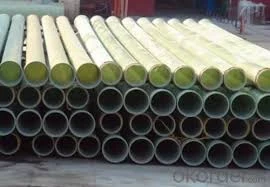
-
 Afrikaans
Afrikaans -
 Albanian
Albanian -
 Amharic
Amharic -
 Arabic
Arabic -
 Armenian
Armenian -
 Azerbaijani
Azerbaijani -
 Basque
Basque -
 Belarusian
Belarusian -
 Bengali
Bengali -
 Bosnian
Bosnian -
 Bulgarian
Bulgarian -
 Catalan
Catalan -
 Cebuano
Cebuano -
 China
China -
 China (Taiwan)
China (Taiwan) -
 Corsican
Corsican -
 Croatian
Croatian -
 Czech
Czech -
 Danish
Danish -
 Dutch
Dutch -
 English
English -
 Esperanto
Esperanto -
 Estonian
Estonian -
 Finnish
Finnish -
 French
French -
 Frisian
Frisian -
 Galician
Galician -
 Georgian
Georgian -
 German
German -
 Greek
Greek -
 Gujarati
Gujarati -
 Haitian Creole
Haitian Creole -
 hausa
hausa -
 hawaiian
hawaiian -
 Hebrew
Hebrew -
 Hindi
Hindi -
 Miao
Miao -
 Hungarian
Hungarian -
 Icelandic
Icelandic -
 igbo
igbo -
 Indonesian
Indonesian -
 irish
irish -
 Italian
Italian -
 Japanese
Japanese -
 Javanese
Javanese -
 Kannada
Kannada -
 kazakh
kazakh -
 Khmer
Khmer -
 Rwandese
Rwandese -
 Korean
Korean -
 Kurdish
Kurdish -
 Kyrgyz
Kyrgyz -
 Lao
Lao -
 Latin
Latin -
 Latvian
Latvian -
 Lithuanian
Lithuanian -
 Luxembourgish
Luxembourgish -
 Macedonian
Macedonian -
 Malgashi
Malgashi -
 Malay
Malay -
 Malayalam
Malayalam -
 Maltese
Maltese -
 Maori
Maori -
 Marathi
Marathi -
 Mongolian
Mongolian -
 Myanmar
Myanmar -
 Nepali
Nepali -
 Norwegian
Norwegian -
 Norwegian
Norwegian -
 Occitan
Occitan -
 Pashto
Pashto -
 Persian
Persian -
 Polish
Polish -
 Portuguese
Portuguese -
 Punjabi
Punjabi -
 Romanian
Romanian -
 Russian
Russian -
 Samoan
Samoan -
 Scottish Gaelic
Scottish Gaelic -
 Serbian
Serbian -
 Sesotho
Sesotho -
 Shona
Shona -
 Sindhi
Sindhi -
 Sinhala
Sinhala -
 Slovak
Slovak -
 Slovenian
Slovenian -
 Somali
Somali -
 Spanish
Spanish -
 Sundanese
Sundanese -
 Swahili
Swahili -
 Swedish
Swedish -
 Tagalog
Tagalog -
 Tajik
Tajik -
 Tamil
Tamil -
 Tatar
Tatar -
 Telugu
Telugu -
 Thai
Thai -
 Turkish
Turkish -
 Turkmen
Turkmen -
 Ukrainian
Ukrainian -
 Urdu
Urdu -
 Uighur
Uighur -
 Uzbek
Uzbek -
 Vietnamese
Vietnamese -
 Welsh
Welsh -
 Bantu
Bantu -
 Yiddish
Yiddish -
 Yoruba
Yoruba -
 Zulu
Zulu
grp piping system
Understanding GRP Piping Systems Advantages and Applications
Glass Reinforced Plastic (GRP) piping systems have revolutionized the way industries handle fluid transportation. Known for their strength, durability, and resistance to corrosion, these piping systems are becoming increasingly popular in various sectors, including water treatment, chemical processing, and oil and gas. This article delves into the characteristics, advantages, and applications of GRP piping systems, highlighting why they are favored over traditional materials such as metal and concrete.
What is GRP?
GRP is a composite material made of plastic reinforced by fine glass fibers. The combination results in a lightweight, yet incredibly strong material that can withstand significant pressures and environmental stressors. The production process involves the molding of resin and glass fibers into specific shapes, creating pipes that meet various specifications and standards.
Advantages of GRP Piping Systems
1. Corrosion Resistance One of the most significant benefits of GRP piping is its remarkable resistance to corrosion. Unlike metal pipes, which can rust and degrade when exposed to moisture and chemicals, GRP is inert to most aggressive environments. This property makes it ideal for transporting sewage, acidic materials, and saline water without the risk of corrosion-related failures.
2. Lightweight and Ease of Installation GRP pipes are considerably lighter than their metal counterparts, which significantly reduces transportation costs and the need for heavy lifting equipment during installation. This feature allows for easier handling and reduced labor costs, making GRP an attractive option for construction and maintenance teams.
3. Strength and Durability GRP pipes boast high tensile strength and pressure resistance, making them suitable for both above-ground and underground applications. They can withstand extreme temperatures and pressures, offering a long lifespan with minimal maintenance requirements.
4. Cost-Effectiveness Although the initial cost of GRP pipes may be higher than traditional materials, their durability and low maintenance requirements lead to cost savings over time. The reduction in replacement frequency and repair costs can result in better long-term financial outcomes.
5. Thermal Insulation GRP provides excellent thermal insulation, which is crucial in applications where maintaining temperature is important. This property helps in reducing energy consumption, especially in hot and cold fluid transportation systems.
grp piping system

6. Environmentally Friendly GRP pipes contribute to a more sustainable environment. Their longevity reduces waste, and the materials used in the production of GRP can often be recycled at the end of their life cycle. Additionally, the reduced need for chemical treatment in maintenance and preservation further supports environmental best practices.
Applications of GRP Piping Systems
GRP pipes find extensive application across numerous industries
- Water and Wastewater Management In municipal and industrial applications, GRP pipes are used to transport drinking water, sewage, and effluents. Their resistance to aggressive chemicals makes them suitable for sewage treatment plants.
- Chemical Processing The chemical industry benefits from GRP’s resistance to corrosive substances, allowing for safe transportation of acids, alkalis, and solvents without the risk of leaks or contamination.
- Oil and Gas GRP pipes are ideal for offshore applications, as they can withstand harsh marine environments. Their lightweight nature also makes them easier to install in remote locations.
- Agriculture In irrigation systems, GRP pipes are used to efficiently transport water, helping to conserve resources and improve crop yields.
- Fire Water Systems GRP is increasingly being used in fire protection systems due to its fire resistance and ability to maintain structural integrity under extreme conditions.
Conclusion
In summary, GRP piping systems represent a superior choice for a variety of industrial applications due to their unique properties, including corrosion resistance, durability, and cost-effectiveness. As industries continue to seek efficient and sustainable solutions for fluid transportation, GRP pipes are likely to play an essential role in shaping the future of infrastructure development. Whether for municipal water systems or industrial applications, the advantages of GRP cannot be overstated, underscoring the importance of continued investment in these innovative materials.









